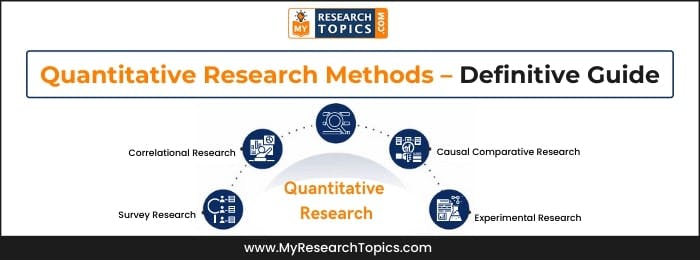What is a PhD?
Published 16 October, 2023
Summary
A PhD is the highest degree that a student can earn in any field of study. A PhD program typically takes four years to complete and requires the completion of a dissertation, which is an original research project conducted by the student. Students who earn a PhD are often able to pursue careers in academia or research.
What does PhD means?
A PhD is an abbreviation for “Doctor of Philosophy.” It is a research degree that qualifies someone to teach at the university level. Earning a PhD usually takes 3-5 years, depending on the field of study.
It signifies an in-depth mastery of a chosen field of study, and often requires years of rigorous research and independent thinking. Earning a PhD is often seen as a prerequisite for distinguished careers in academia, research, and other highly specialized fields.
The PhD is a unique academic degree and has some significant differences from other degrees. Unlike undergraduate or master’s programs, there isn’t any lectures in the beginning of your study program; instead, you’ll be doing research all semester long before graduating with an actual dissertation (which could take years). This means that one must develop strong writing skills as well since most papers need to have thorough editing before being accepted for publication.
Those who complete a PhD are referred to within academic and/or research settings as “doctor” (typically abbreviated). It’s unusual for someone working outside of academia not use this title but some may decide on post-nominal letters such as “PhD, DPhil” instead.
There are different types of PhD programs available. A traditional PhD program requires the completion of a dissertation, which is then defended in front of a committee. An accelerated PhD program may allow students to complete their degree in a shorter period of time by completing coursework and research simultaneously. There are also online PhD programs available, which may be more flexible for students who are working full-time or have other commitments.
What Are the Entry Requirements for a PhD?
To pursue a PhD, students usually need to have at least an undergraduate degree that is related the field they want research in. A candidate may also be expected hold either one or two master’s degrees but this does not mean you must complete them all before enrolling as well; it’s possible (and common) for people without any titles apply successfully onto programs like these too.
Students who self-fund their courses can often be more relaxed about the entry requirements. They will likely need good grades in order to join a PhD program, but these students typically gain admission because of professional work experience that demonstrates how well suited they are for academia
By contrast with those on scholarship or funded studies, part-time learners and independent students are often more mature with existing careers. This means that the latter two categories tend to have slightly different expectations in comparison to full-time students – though the PhD itself is still the same.
How Long Does a PhD Take?
A full-time PhD program typically takes four years to complete and part-time PhDs last 6-7 years, though this can vary depending on the field of study and the student’s individual circumstances. Some students may be able to complete their degree in a shorter period of time by enrolling in an accelerated PhD program, which allows students to complete coursework and research simultaneously. Other students may take longer to finish their degree if they need to take time off for personal or professional reasons.
What is the Cost of a PhD?
The average tuition fee for UK and EU students is £4,407 per year. The range of fees can vary greatly depending on which programme you’re taking – with some costing as little at 3k or more.
International students can expect to pay £16,000 -£24 thousand per year for tuition. This is more than the average British student who pays around £19600 annually.
This difference is often because the majority of taught programmes in the UK are heavily subsidised by the government, meaning that fees are lower for home students.
The scholarships available to those who qualify can be substantial, with some offering full tuition coverage as well. The majority of these funding opportunities are partial which means they only cover the cost associated with attending school such as your fees or living expenses but not both (for example if you receive an award that provides $2k per year for 4 years).
What Does a PhD Involve?
A PhD is a research-based degree that culminates in a dissertation, which is a long essay or thesis. In order to write a dissertation, students must conduct original research and synthesize what they have learned from their coursework. A committee of faculty members will review the student’s work and decide whether it is worthy of the PhD title.
A PhD program consists of four main phases:
- Literature Review: In this phase, students will read and analyze the existing body of research in their field. This will help them to identify gaps in the literature and determine the direction of their own research. The literature review is the first step in a successful PhD. It should outline what you plan to study and why it’s important, as well as how your research will help improve current knowledge or provide new insights into an area that has been studied before but with limited success.”
2.Research: In this phase, students will conduct their own research and collect data to support their dissertation. This may involve fieldwork, laboratory work, or surveys. The second year of studying for a PhD is when you work on your research. This can involve designing experiments, running them in the lab alongside other students or collecting data from remote regions all over world! You should check regularly with supervisors to ensure that everything’s going well and update them about any ideas/ issues before proceeding forward.
- Thesis Writing: In the third phase, students will write their dissertation. This is a long essay or thesis that must be defended in front of a panel of experts. The dissertation is usually between 80,000 and 100,000 words.
The goal of a thesis is to offer an argument that will convince readers in support for your position on the topic at hand. In order achieve this, you need not only defend it well but also provide them with new insight into their field–something they didn’t already know about or could’ve guessed from other sources.
- Attending the Viva: The final phase of a PhD is the viva, which is a Latin word meaning “to live”. In this phase, students will defend their dissertation in front of a panel of experts. The viva is an oral examination that allows the student to discuss their research and answer questions from the panel. This is the last step before being awarded the PhD.
A viva is an oral examination, which allows the student to discuss their research and answer questions from the panel. This is the last step before being awarded the PhD.
The viva lasts three or four hours, depending on how many questions the panel asks you. At last, after the viva, you’re almost there. You’ll usually be asked to make some changes to your thesis based on the examiners’ comments. You’re now ready to submit your finished thesis for either:
- If you complete the requirements, you will be awarded a doctorate (most frequent result).
- If you don’t complete the requirements, you may be awarded a lower degree, such as a Master’s degree like MPhil
- No prize is given in circumstances of plagiarism (extremely unlikely outcome).
What are the benefits of studying PhD?
Some benefits of studying PhD are as follows:
1.You get to work on cutting-edge research that is constantly pushing the boundaries of knowledge.
2.You will develop highly transferable skills, such as problem solving, critical thinking, and time management, which will be useful in any career.
3.You will have the opportunity to travel and present your research at international conferences.
4.You will receive a stipend from the university, which can be used to cover living expenses.
5.You will get to work with some of the world’s leading experts in your field.
6.You will gain an in-depth understanding of your chosen field of study.
7.You will be able to contribute new knowledge to your field.
8.You will receive a PhD, which is the highest academic degree available.
What are the career Opportunities after PhD
There are many options available to individuals with a PhD. Some people choose to pursue a career in academia, while others may opt for a more non-traditional path. Below are just a few of the possibilities:
- Pursue a tenure-track position at a university
- Work as a postdoctoral researcher
- Engage in independent research
- Become a government or industry scientist
- Teach at the secondary or collegiate level
- Take on administration positions within universities or other organizations
- Pursue additional education, such as medical or law school
With all of these options, and many more available, there is no one answer to the question of what you can do after completing your PhD.
What are key difference between PhD vs Doctorate
A PhD and a doctorate are both terminal degrees that signify that the holder has completed the highest level of academic research in their field. However, there are some key differences between the two degree programs.
For one, a PhD program typically takes longer to complete than a doctorate program. While most PhD programs take four to five years to finish, doctorate programs can be completed in three to four years. This is because a doctoral program emphasizes more on coursework, while a PhD program requires students to conduct original research that contributes new knowledge to their field.
Another key difference is that not all doctorate programs require students to write and defend a dissertation, while all PhD programs do. A dissertation is an extensive research project that must be completed in order to earn a PhD.
Finally, the title “Doctor” can only be used by someone who has earned a doctorate, while the title “PhD” can be used by anyone who has completed a PhD program (regardless of whether or not they have defended their dissertation).
Conclusion
A PhD is the highest academic degree available. It is awarded to individuals who have completed an extensive program of research in a specific field. A doctorate is also a terminal degree, but not all doctorate programs require students to complete a dissertation. The title “Doctor” can only be used by someone who has earned a doctorate, while the title “PhD” can be used by anyone who has completed a PhD program.
Other Related Guides
- Research Project Questions
- Types of Validity in Research – Explained With Examples
- Schizophrenia Sample Research Paper
- Quantitative Research Methods – Definitive Guide
- Research Paper On Homelessness For College Students
- How to Study for Biology Final Examination
- Textual Analysis in Research / Methods of Analyzing Text
- A Guide to Start Research Process – Introduction, Procedure and Tips
- Research Findings – Objectives , Importance and Techniques
- Topic Sentences in Research Paper – Meaning, Parts, Importance, Procedure and Techniques












